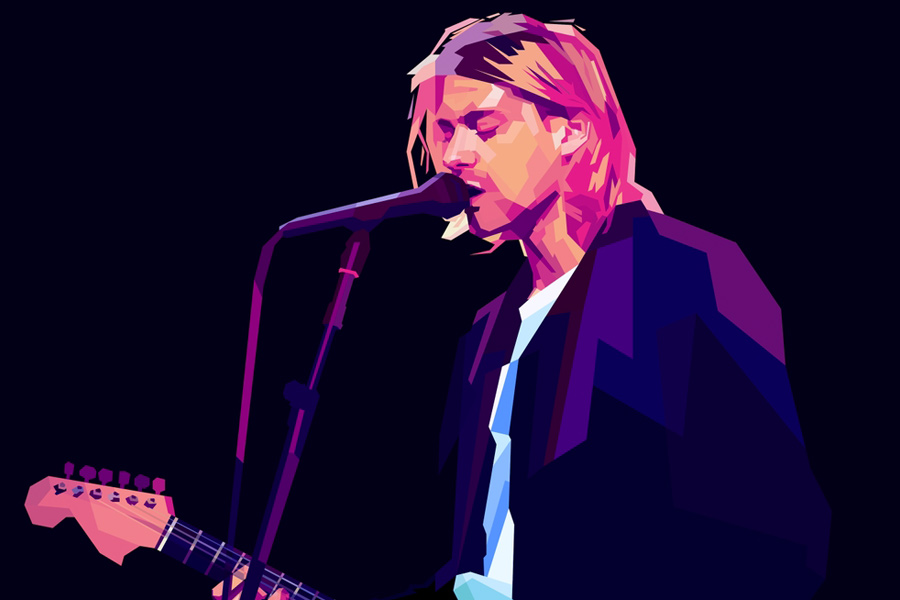Fans and admirers from around the world descended on Seattle this week to pay tribute to Kurt Cobain 30 years after the troubled songwriter and lead singer of the seminal grunge rock band Nirvana took his own life.
Juan Prado Teno, a drummer from Chile and member of the fan group Nirvana Latino, said he identified with the raw energy of Cobain and Nirvana's music, as well as messages in their work vigorously denouncing homophobia, misogyny and racism.
"Nirvana for me is the philosophy to respect women, do it yourself, rock and roll. That's to me, Nirvana and the legacy of Cobain," Teno said while standing outside the Central Saloon, a storied grunge venue.
Teno said he was visiting the U.S. for the first time for Friday's anniversary of Cobain's death on April 5, 1994.
The singer, who was 27, was found dead from a self-inflicted gunshot wound at the Seattle home he shared with fellow rocker and wife Courtney Love overlooking Lake Washington. He had been recovering from a drug and alcohol overdose the previous month.
According to excerpts from a suicide note read at a memorial service days later, Cobain took his life because he no longer felt the passion to go on with his music.
Nirvana's punk-influenced, raw-edged sound and the angst-filled lyrics penned by Cobain had propelled the band to the top of the pop music charts and put the Seattle-based grunge sound squarely in the mainstream.
But the lyrics that struck such a powerful chord in Nirvana's "Generation X" fans were rooted in Cobain's own troubled childhood and personal unhappiness, which appeared to deepen with the band's success.
Brad Graham, 34, traveled from Kelowna, British Columbia, to a park next to Cobain and Love’s final home together, pausing to pay his respects at a wooden seat known to fans as Kurt Cobain’s bench and transformed into a makeshift shrine.
"When I was definitely in my early 20s, and I was confused about life and what I wanted out of it, a lot of that resonated with me,” Graham said of Nirvana's music. “A lot of the frustration in the music, that resonated with me a lot."
Journalist, author and Seattle music historian Charles Cross said he sees Cobain's life and talent, though cut short, as a profound gift from a "generational spokesperson."
“Yes, losing him at 27, so young and so in the prime of life, is a horrible tragedy,” said Cross, who knew Cobain and wrote the biography "Heavier than Heaven."
“But given how difficult his life was and how often suicide and drugs had been an issue, it's a miracle in the way we got as much of Kurt Cobain as we did," Cross said, adding that people of Seattle feel "an extra layer of grief."
"We felt like he was ours," Cross said.
While thumbing through photographs he took during the 1990s, some ultimately curated into a book about Nirvana, rock 'n' roll photographer Charles Peterson pondered Cobain and Nirvana’s legacy.
“For me personally, it's really about the music, and the power of the music and the staying power of it,” Peterson said. “I don't really think as a personality, as a celebrity, he would he would have that spot that he still maintains if it wasn't for the power and the voracity of the music."











